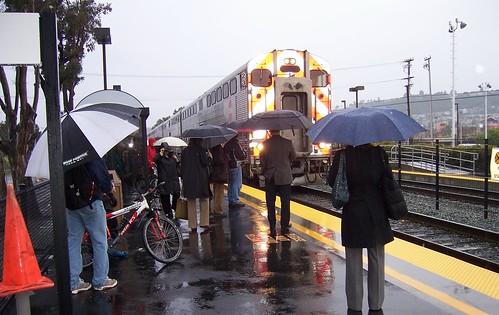 |
| Like its owner, the car's undercarriage is not very attractive. |
In the latest series of problems the airbag light has remained on since October; the mechanic said he couldn't solve it without removing the airbag, a fix that would cost more than the aged van is worth. Next the cruise control stopped working, then the horn. The last straw was the emergency brake light, which remained on after the brake had been released.
Last Monday we began to test-drive new minivans and SUVs, the cheapest of which would cost $40,000. We decided on a SUV, and after performing several calculations, decided that a three-year lease would provide for the most flexibility in case our driving needs changed. But first we needed to make sure that the minivan trade-in had no safety issues.
Our mechanic performed his diagnosis and replaced the van's brake pads, calipers, and water pump at a cost of $800. He also gave us some very good news: the airbag, cruise control, and horn problems were all probably solvable by replacing a faulty clockspring, which Chrysler had recalled and would repair free of charge.
Yesterday the Dodge dealer replaced the clockspring, and the van is working better than it has for the past five years. I felt so pleased that I paid $200 for two re-programmed remote controls. That's how one behaves when one rescues an old car from oblivion and doesn't have to spend $40,000 on a new SUV.


















